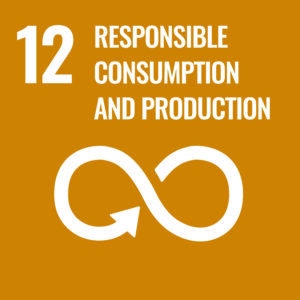Be Food Wise, Not Foolish is a GOAL NextGen Youth Project which evolved from the 2023 Youth Programme. This cohort explored our interconnected food systems and food insecurity around the world.
Keep up to date with the project on our social channels.
Be Food Wise, Not Foolish has been curated by Aidan Ruane, Sinead Rafter, Joshua Marikopo, Jariatu Kamara & Martha Nabatanda.
What is Food Waste
According to the Environmental Protection Agency food waste is described as any food that becomes waste under the following conditions:
- It has entered the food supply chain,
- It then has been removed or discarded from the food supply chain, or at final consumption stage, and
- It is finally destined to be processed as waste.
Tackling Food Waste as Global Citizens
It is imperative to make sure we aren’t wasting valuable resources in our daily lives. But the need to act on this issue also stems from a key responsibility each and every one of us has as a global citizen who cares about our planet and its inhabitants. Tackling food waste is a key element of the 12th sustainable development goal or SDG set out by the United Nations - “responsible consumption and production”. More specifically, objective 12.3 which states:
“By 2030, halve per capita global food waste at the retail and consumer levels and reduce food losses along production and supply chains”.

Food Waste in Ireland and Around the World
According to the Environmental Protection Agency (EPA), in Ireland we waste around 800,000 tonnes of food each year. Growing and transporting food uses huge amounts of resources such as land, water and energy. When food is wasted in such large quantities, we waste these resources too.
Let’s paint a picture of how much of a global issue food waste really is in an Irish context with some statistics from the EPA.
- Irish households alone threw away an estimated 221,000 tonnes of food (29% of total) in 2021. This is equal to about 120 kg of food waste per household or 44 kg per person (that’s about half the weight of a full brown bin).
- Food waste costs the average Irish household about €60 per month or €700 per year. That’s an annual national cost of €1.29 billion.
- Restaurants and food services generated approximately 189,000 tonnes of food waste (25% of total) in 2021. This sector includes food waste collected from hotels, B&Bs, pubs and restaurants, cafes, takeaways and canteens. (Note: Irish households produce more combined waste than hospitality services!!)
- A report titled “Reducing Commercial Food Waste in Ireland” published by the EPA in 2019 found that nearly 70% of food waste from the hospitality sector can be deemed as edible food that is classed as avoidable food waste.
How to Reduce Food Waste at Home
- Only buy what you need. plan your meals, make a list and stick to it. Avoid impulse buying.
- Buy oddly-shaped or bruised fruits and vegetables which are often thrown away.
- Cook smaller portions at home or share large dishes at restaurants. If you don’t eat everything you make, freeze it for later or use the leftovers for another meal.
- Buy Local! Your supporting family farmers and small businesses in your community. You also help fight pollution by reducing delivery distances for trucks and other vehicles.
- Store food wisely, move older products to the front of your cupboard or fridge and new ones to the back. Use airtight containers to keep open food fresh.
Resources
Ready to tackle food waste? Learn more at -
International
- UN Food and Agriculture Organisation
- EU Commission - DG for Food, Farming, and Fisheries
- EU Farm to Fork initiative
- International Food Policy Research Institute
Ireland
- Environmental Protection Agency
- #StopFoodWaste
- Dept. for Environment, Climate, and Communications
- Dept. of Food and Agriculture
- Zero Waste Alliance Ireland
- Airfield Estate (Dublin)
- Community Resources Network Ireland
- Restaurants Association of Ireland
- Bord Bia
- Grow It Yourself
- FoodCloud
Sierra Leone
Uganda
Zimbabwe
Nigeria
Follow us!
Follow the GOAL NextGen Youth Programme on our social media channels.
